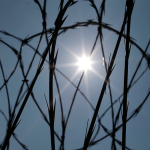Warm weather invites alfresco dining. Whether it’s a barbeque or picnic, you may get some unwanted guests buzzing around. Wasps that appear when you’re eating or cooking outside are just looking for food, and generally aren’t interested in you. However, if they’re spoiling your experience, there are several things you can do to keep wasps away from your outdoor dining area, according to experts.
What Are Wasps?
“Wasps are a diverse group of insects in the order Hymenoptera, which also includes bees and ants,” says David Mizejewski, a naturalist at the National Wildlife Federation and author of Attracting Birds, Butterflies and Other Backyard Wildlife. “There are tens of thousands of known wasp species, with thousands of new ones identified each year.”
Wasps tend to be narrower in size than bees and have different diets. “Bees are vegetarians, only consuming flower nectar and pollen and have a soft, hairy exoskeleton,” says Charlotte Ekker Wiggins, author of Bee Club Basics: How to Start a Bee Club, a certified master beekeeper and master gardener. Wasps can be a nuisance in an outdoor dining area because they eat insects and other animal proteins. “Wasps are carnivores and have a shiny, bald, longer, leaner body than bees,” she says. “They also have a cinched-in waist between their thorax and abdomen.”
Why Wasps Are Attracted to Your Outdoor Dining Area
When wasps are hungry and little food is available in their environment, they seek out alternatives, including human food. “Wasps are most likely to be looking for food in late summer when their populations are high and food sources in nature are low,” says Ekker Wiggins. “Wasps are attracted to sweet smells and the odor of meat.”
Tips for Avoiding Wasps in Your Outdoor Dining Area
Limiting access to food and drinks that attract wasps
- Cover food to prevent wasps from smelling the food and buzzing around. “Wrap any food with meat and sweet desserts to minimize wasps landing on surface areas,” says Ekker Wiggins.
- Look before you drink. Before drinking from a bottle, can, or cup, ensure no wasps are inside. “Check open cans before drinking to make sure no flying visitors have landed inside,” says Ekker Wiggins.
- Use herbal scents to keep them away. “They don’t like citrus and peppermint scents. You can try to keep wasps away by spraying the edges of a picnic table with a few drops of peppermint oil in water in a spray bottle,” says Ekker Wiggins.
Matthew Benson
Why Wasps Are Important for the Ecosystem
Similar to bees, wasps pollinate plants and contribute to the biodiversity in the ecosystem. “Wasps serve as pollinators as well as predators and parasites of other insects, many of which are pests,” says Mizejewski. He says that wasps also serve as a food source for other species.
Where Wasps Nest
Some wasps are solitary, while others live in colonies, like bees. Many solitary wasps don’t have communal nests. “These solitary wasps mate, and the female lays eggs with prey such as a caterpillar, grasshopper, fly, or spider that she’s stung and paralyzed.” Mizejewski says.
“Some species lay their eggs directly on their living host. The larvae hatch, feed on the prey, and emerge as adults.” These wasp species are less aggressive since they don’t have a nest to protect. He says they rarely sting people. “All of this is true for bees as well, except bees provision their young with pollen and nectar instead of animal prey,” he adds.
Misconceptions About Wasps
People often think wasps are more likely to sting because they don’t lose their stinger and can sting multiple times. Experts agree that wasps don’t sting for the sake of stinging. “Wasps sting when they feel threatened or when they are defending their nests,” says Ekker Wiggins. “Staying calm when wasps are present is the best way to avoid being stung. Swinging and fast movements can be perceived as threatening to both bees and wasps.”
“The best way to avoid conflict with wasps is to understand their behavior and the fact that most wasp species are non-aggressive,” says Mizejewski. So next time you see a wasp, relax and don’t make rapid or flapping movements; you’ll notice it will leave you alone.






